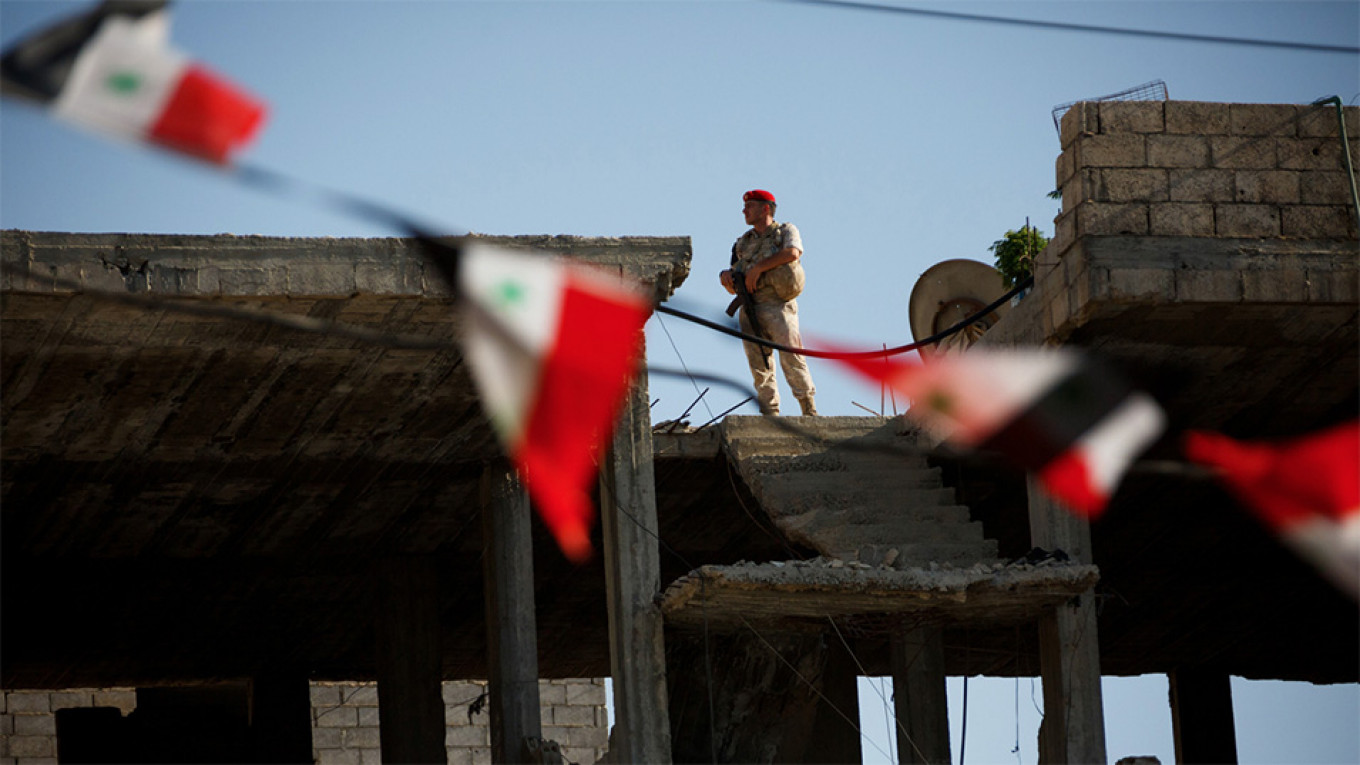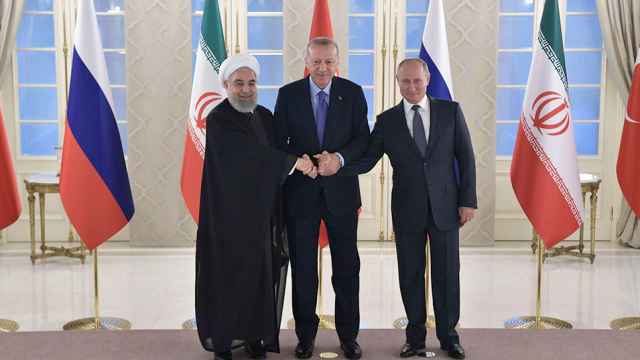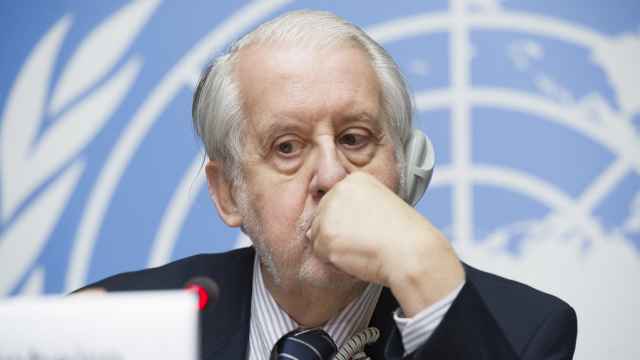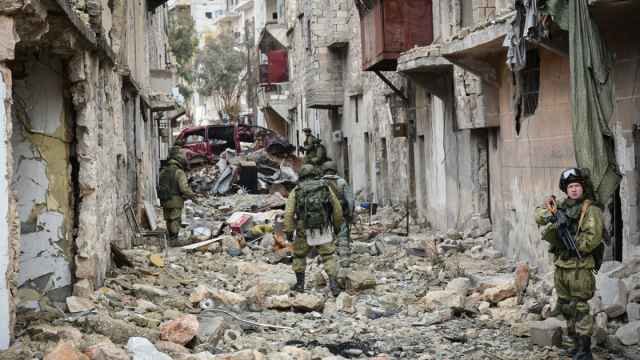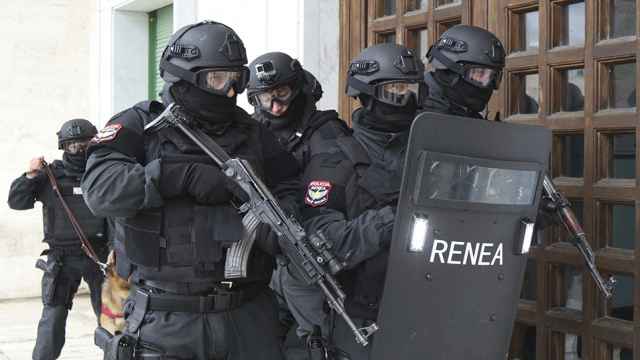Russia has sent special forces in recent days to fight alongside Syrian army troops struggling to make gains in a more than two month assault in northwestern Syria to seize the last opposition bastion, senior rebel commanders said.
They said although Russian officers and troops had been behind front lines directing the operations, using snipers and firing anti-tank missiles, this was the first time Moscow had sent ground troops on the battlefield in the campaign that began at the end of April.
"These special Russian forces are now present in the battlefield. The Russians are intervening directly now," said Captain Naji Mustafa, spokesman for the Turkey-backed National Liberation Front (NLF) coalition of rebel factions.
Russian ground forces entered the battle with government forces to seize the strategic Humaymat hilltops in northern Hama that fell into rebel hands last week, regaining it after previous successive attempts by the army failed.
"When [Syrian President Bashar] al-Assad's forces failed to advance, Russia then intervened directly... after bombing the area with more than 200 sorties," Mustafa said.
Russian defense ministry officials denied the allegations.
More than two months of Russian-backed operations in and around Idlib province have yielded little or nothing for Russia and its ally President Bashar al-Assad.
It is a rare case of a military campaign that has not gone in Russia's favour since it intervened in 2015.
"Russia did not only fail but has been exposed to defeat," Mustafa said.
The head of a major rebel group said Moscow's deployment of undisclosed numbers of ground forces came only after elite Syrian troops known as the Tiger Forces and allied militias were unable to make "any significant territorial gains."
"The Syrian army found itself in a crisis and were forced to ask for Russian troops on the battlefield," said Jamil al-Saleh, the head of Jaish al Izza rebel group.
Al-Saleh echoed views of the opposition that the Russians and their allies who had won every major battle with the opposition since Moscow intervened in Syria had miscalculated the strength and motivation of the rebels.
"In light of the size of artillery and aerial bombing, the Russians and the regime had expected to seize large areas," Al-Saleh said.
Rebels said supplies of weapons including guided anti-tank missiles by Turkey had not only made it a costly battle for the Russians and their allies but repelled ground assaults.
The Russian-led assault has not only left dozens of villages and towns in ruins but according to the UN has forced over 300,000 civilians to flee to the safety of areas closer to the Turkish border.
Another rebel official said Iranian-backed Shi'ite forces that had so far refrained from joining the Russian-led assault were now entering the battlefield.
"The Iranians have brought reinforcements and are now fighting on several fronts," said Mohammad Rashid, a spokesperson for Jaish al-Nasr, a Turkey-backed rebel group fighting the Syrian army.
A Message from The Moscow Times:
Dear readers,
We are facing unprecedented challenges. Russia's Prosecutor General's Office has designated The Moscow Times as an "undesirable" organization, criminalizing our work and putting our staff at risk of prosecution. This follows our earlier unjust labeling as a "foreign agent."
These actions are direct attempts to silence independent journalism in Russia. The authorities claim our work "discredits the decisions of the Russian leadership." We see things differently: we strive to provide accurate, unbiased reporting on Russia.
We, the journalists of The Moscow Times, refuse to be silenced. But to continue our work, we need your help.
Your support, no matter how small, makes a world of difference. If you can, please support us monthly starting from just $2. It's quick to set up, and every contribution makes a significant impact.
By supporting The Moscow Times, you're defending open, independent journalism in the face of repression. Thank you for standing with us.
Remind me later.


